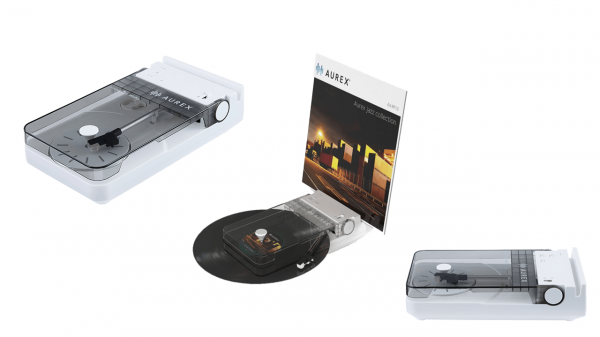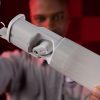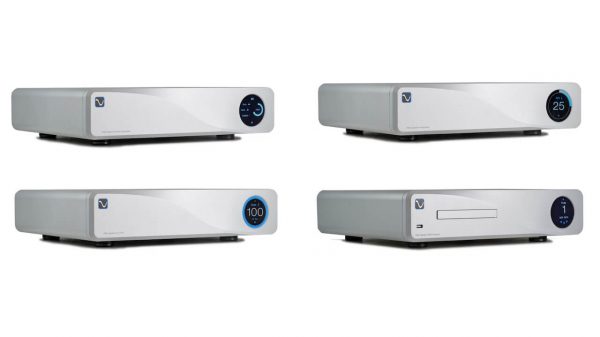CEA and HRRC Encourage Congress to Not Arbitrarily Suppress The United States’ Technological Development
Arlington, VA – Congress should be extremely concerned about the proposals from the content community to suppress technological development on arbitrary or insufficient bases, stated Consumer Electronics Association (CEA) vice president of technology policy Michael Petricone in testimony delivered today before a congressional committee. Testifying on behalf of CEA and the Home Recording Rights Coalition (HRRC), Petricone made his comments before a hearing held by the House Judiciary Committee’s Subcommittee on Courts, the Internet and Intellectual Property exploring “Content Protection in the Digital Age: The Broadcast Flag, High-Definition Radio and the Analog Hole.”
Petricone discussed the “HD Radio Content Protection Act,” “Analog Content Protection Act” and “Broadcast Flag Authorization Act.” He addressed each act as separate and distinct issues and asked the Committee that these subjects not be “conflated or confused.”
“The proposal to lock down free, over the air radio is especially pernicious. Unlike the video ‘flag,’ the proposal is aimed at stopping private and noncommercial recording of lawfully acquired content. The only apparent way to accomplish this would be through encryption.
“The rollout of terrestrial digital radio is well underway. Over 500 stations are broadcasting digitally, thousands of radios have already been sold; over 25,000 are forecast to be in the market by year end, with tens if not hundreds of thousands to follow in 2006. Since no encryption system currently exists, an encryption requirement would render both the transmission infrastructure and the initial radios obsolete, stopping the rollout of this new technology in its tracks.
“In essence, the Recording Industry Association of American (RIAA) is trying to use this Committee to leverage the satellite radio industry on the eve of negotiation for a new performance royalty. And, without saying so, RIAA is trying to gut the ‘Audio Home Recording Act’ written by this Subcommittee.
“Next the ‘Analog Content Protection Act.’ This draft is immensely broad and complicated and confusing. This bill would impose a massive government design mandate on every product capable of digitizing analog video signals – not just PCs and television, but even those found in airplanes, automobiles, medical devices and technical equipment.
“A key concern is that one of the two required copy protection technologies is largely unknown as to its cost, operation and licensing status. In addition, all key decisions would be left up to the Patent & Trademark Office (PTO). With due respect, it is unclear how the PTO could make these decisions, or who would exercise oversight over its judgment.
“CEA and HRRC are not opposed to addressing the ‘analog hole’ issue. Unfortunately, the current draft legislation in no way resembles a multi-industry consensus and CEA and HRRC oppose its enactment in its current form.
“The ‘Broadcast Flag Authorization Act’ language is close to a reinstatement of what the Federal Communications Commission (FCC) did in its original Order, but we are concerned that it grants discretion to the FCC to change everything in the future. Also, we believe it is deficient in not addressing ways in which the flag can be misused. We urge the Committee to include narrow exceptions for local news and public affairs programming, and allow schools and libraries to use broadcast excerpts for distance learning.
If Congress is going to provide more protection to copyright holders, it should also safeguard the rights of consumers to enjoy the works that they lawfully acquire. That is why, should Congress move forward with any proposals discussed today, HR 1201 should be part of the package.
In closing, Petricone said, “As we consider these bills, please do not ignore the larger issue of U.S. competitiveness. While other countries are busy developing their technology industries to compete with America, we face attempts from the media companies to suppress technological development on arbitrary grounds. This is a trend that ought not to be encouraged.”
HRRC is urging concerned consumers to visit its web site, www.HRRC.org, and to send a message to Members of Congress.
About HRRC:
The Home Recording Rights Coalition, founded in 1981, is a leading advocacy group for consumers’ rights to use home electronics products for private, non-commercial purposes. The members of HRRC include consumers, retailers, manufacturers and professional servicers of consumer electronics products. Further information on this and related issues can be found on the HRRC website, www.hrrc.org.
About CEA:
The Consumer Electronics Association (CEA) is the preeminent trade association promoting growth in the consumer technology industry through technology policy, events, research, promotion and the fostering of business and strategic relationships. CEA represents more than 2,000 corporate members involved in the design, development, manufacturing, distribution and integration of audio, video, mobile electronics, wireless and landline communications, information technology, home networking, multimedia and accessory products, as well as related services that are sold through consumer channels. Combined, CEA’s members account for more than $122 billion in annual sales. CEA’s resources are available online at www.CE.org, the definitive source for information about the consumer electronics industry.
CEA also sponsors and manages the International CES – Defining Tomorrow’s Technology. All profits from CES are reinvested into industry services, including technical training and education, industry promotion, engineering standards development, market research and legislative advocacy.























